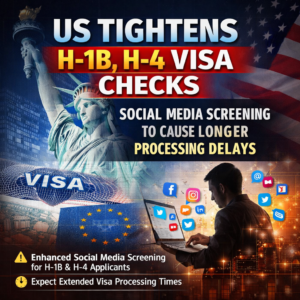News Source:- “Immigration fraud” means immigration legal services-related scams that target vulnerable immigrant New Yorkers. Immigration fraud, as described here, can be by attorneys and non-attorneys. It can also be by others who engage in other fraudulent acts such as phone scams and impersonations threatening immigration consequences. Immigration fraud is widespread in immigrant communities and the consequences can be severe – for those committing fraud and their victims. Below find more information on how to avoid becoming the victim of immigration fraud.
How to Avoid Fraud
If you need immigration legal advice, only go to a lawyer or someone who is accredited by the U.S. Department of Justice (DOJ) or an organization recognized by the DOJ.
Immigration assistance service providers are people or businesses that charge fees for any kind of immigration-related services. They are sometimes known as notarios públicos in Spanish-speaking communities, immigration “brokers,” immigration “consultants,” or “accountants” providing immigration assistance. Many immigration assistance service providers are not lawyers nor accredited/recognized by the DOJ and cannot give you legal advice. To learn more about what immigration assistance service providers can and cannot do for you, click here.
Immigration law is complicated. Beware of fraudulent providers who may indicate otherwise and make false promises, such as:
- An easy way to obtain a green card
- A way to get a work permit or visa immediately
- Statements indicating that there are no risks or consequences
- Claims of special influence with immigration authorities
WHAT NOT TO DO:
- Do not pay for government application forms – forms are free and can be downloaded online at www.uscis.gov/forms
- Do not give original documents – give copies instead
- Do not sign any blank or incomplete forms
- Do not sign papers, immigration forms, or contracts that you do not fully understand
WHAT TO DO:
- Always ask questions – even if the provider was recommended by a family member or friend; you should feel confident about the provider
- Ask for proof that the provider is a licensed attorney or accredited/recognized by the DOJ
- Get a second opinion
- Only go to providers that have a physical location
- Ask for a written agreement that describes the services to be provided and is signed by the provider – read the agreement before signing it, and keep the signed copy for your records
- Get copies of documents prepared for you
- Ask for a written receipt that includes the name and address of the provider. Read More.



